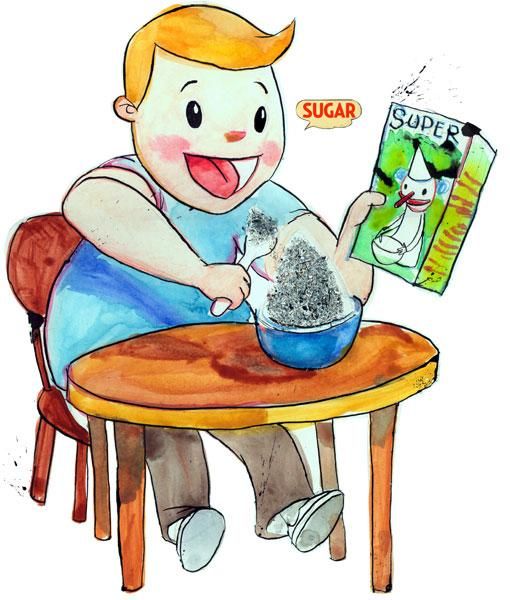Dubai: Finding something to feed the children for breakfast might be tricky for some parents but reaching for the cereal box should be avoided at all costs, according to a recent study.
Consumers International (CI), the global federation of consumer organisations, said in its report on the marketing of breakfast cereals to children that some contain more sugar than a doughnut.
The findings of the 32-country study show that shocking levels of sugar and salt are found in popular children's cereals, including leading Kellogg's and Nestlé products.
Popular
While sugar levels differ from country to country, popular products such as Kellogg's Frosties and Froot Loops, and Nestle's Cheerios and Nesquik are all deemed "high" by the UK Food Standards Agency. In many products, the levels even exceed the sugar content of iced doughnuts, ice cream or cookies.
Belinda Rennie, a Dubai-based nutritionist said parents are not taking enough time to read food labels.
"My experience is that parents say [cereal] is an easy, no-fuss option, or that their children won't eat anything else without realising how they are overloading their children with sugar - the most damaging ingredient, along with artificial additives. Parents and children don't read food labels. Ideally, [cereals should contain] less than 5g of sugar and preferably no more than 2g of sugar per 30g serving," she said.
"I heartily agree with CI that breakfast cereals can be damaging to children's health and advertising on the packages is misleading and should be regulated," Rennie added.
"I don't recommend many packaged breakfast cereals as not many of them are in line with the 5g of sugar per serving recommendation. I think kids blackmail their parents to buy these cereals and they are an easy morning solution," she said.
According to a Reuters report, the breakfast cereals that are marketed most aggressively to children are those that are of the worst nutritional quality. For the purpose of the report, children's cereals were classified as those that had a character on the box, toys or games inside, or that were listed as such on the manufacturer's website.
Less protein and fibre
The report found that children's cereals had more sugar, sodium, carbohydrates and calories per gram than non-children's cereals, and less protein and fibre. Sugar accounted for more than one-third of the weight of children's cereals, on average, compared to less than one-quarter of the weight of adult cereals.
In 2004, health officials in Denmark banned the addition of vitamins and minerals to 18 varieties of breakfast foods and cereals produced by Kellogg Co., believing that eating those products regularly could potentially ruin the health of children and pregnant women, it was reported on nutrition website mercola.com.
A government laboratory delivered the ban after examining the ingredient lists provided by Kellogg's.
The company defended its position, arguing the four nutrients were present in quantities equal to 25 per cent or less of an adult's daily requirement, and that the added ingredients were clearly marked on the products and fell within established international guidelines.
What is your traditional breakfast like? What sort of diet do you provide your children with? How can parents change their child's palete to a healthy one? Do you think parents buy food with processed sugar as a last resort, because children refuse to eat healthy food?













